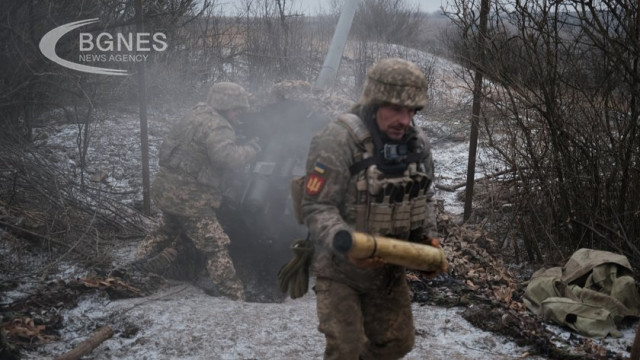The gunpowder shortage is hampering Europe's struggle to secure hundreds of thousands of shells for Ukraine's defense efforts against Russian invaders.
"We all realized the need to face the shortage of some components, especially gunpowder," French President Emmanuel Macron said after a meeting of Kiev's allies in Paris.
"Gunpowder is really what we lack today," he stressed.
The gunpowder is used in propellant charges that launch artillery shells - such as the standard NATO 155mm shells used in many guns sent to Ukraine - tens of kilometers away.
"A simple high-explosive artillery shell has three parts - a steel casing, a high-explosive main charge and a detonator," usually set to trigger the explosion on impact, explained Johann Höcherl, a munitions expert at the University of the German Armed Forces in Munich.
"The projectile charges are usually separate because gunners use one or two, up to six or even eight depending on the desired range," he added.
In a video on its website, German arms manufacturer Rheinmetall illustrates charge cylinders filled with explosive pellets that are placed behind a projectile in the breech of a gun.
Innovation in the workplace
Europe has a very small number of explosives manufacturers, says Jean-Paul Molny, deputy director of France's Institute for International and Strategic Relations (IRIS).
These include companies such as Eurenco, which operates in France, Belgium and Sweden, and Nitrochemie, whose majority owner is Rheinmetall, with sites in Germany and Switzerland.
With many countries pushing to move production home, France "is in the process of moving part of Eurenco's production to Bourges", about 200 km south of Paris, Molny said.
"The main issue is the amount of production," he stressed.
EU Internal Market Commissioner Thierry Breton said in Paris that the bloc also faced challenges in finding the raw materials needed for the shells.
"The production of gunpowder requires a specific type of cotton, which in most cases comes from China," he said.
Nitrocellulose, also known as cotton wool, is a key ingredient in the manufacture of gunpowder.
"If you don't know, the supply of this cotton from China stopped as if by accident a few months ago," explained Breton.
In recent years, China and Russia have increased their economic cooperation and diplomatic contacts, and their strategic partnership has become even closer since the invasion of Ukraine.
In Russia this week, China's Vice Foreign Minister Sun Weidong said bilateral relations "are at their best period in history."
Breton pointed out that the Scandinavian countries had found a substitute for Chinese cotton.
"We are working on innovations precisely to meet the need for gunpowder, because today we have problems with its availability," he warned.
Companies producing replacement components will be among those selected for grants under the EU's Act to Support Ammunition Production (ASAP), which will be announced next week. /BGNES







